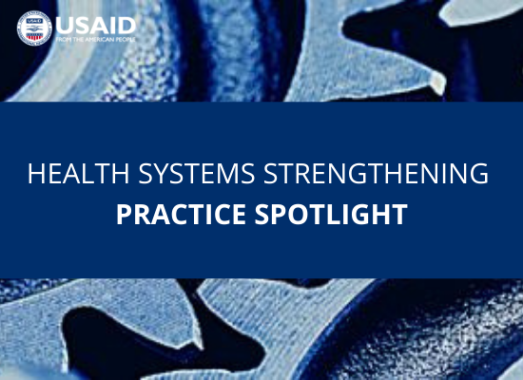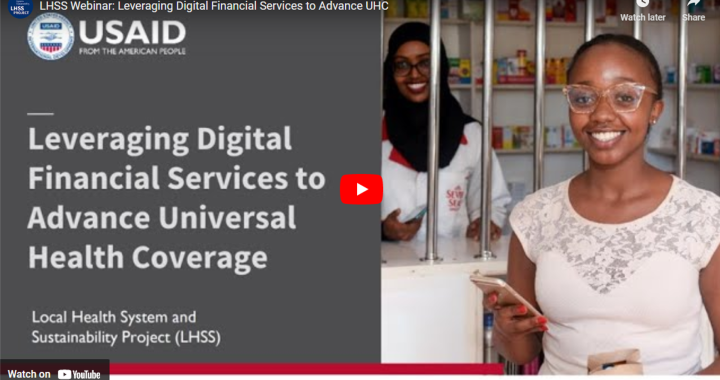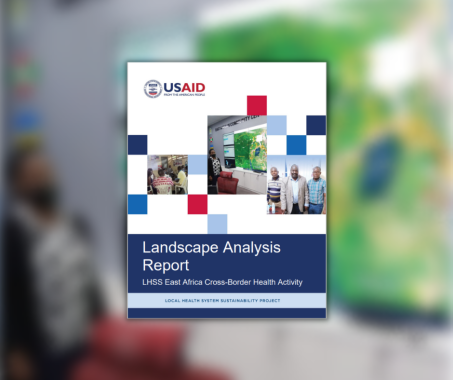People traveling through or living in Eastern Africa’s cross-border areas face heightened risk for numerous illnesses, including HIV infection, TB, malaria, and other infectious diseases. These issues are compounded by high rates of maternal and child morbidity and mortality and stunting due to food insecurity in the region.
LHSS is working to increase access to and use of affordable, quality health care in cross-border areas of East Africa. We partner closely with regional intergovernmental organizations (RIGOs), national governments of nine countries (Burundi, Djibouti, Ethiopia, Kenya, Rwanda, Somalia, South Sudan, Tanzania, and Uganda), cross-border authorities, the private sector, local organizations, and health service providers.
Our Approach
Our efforts focus on building the capacity of RIGOs and cross-border stakeholders; enhancing governance, partnership, and coordination; improving the digitization and interoperability of cross-border health evidence generation and use; and institutionalizing financial protection systems tailored for cross-border and mobile populations. Specific objectives include:
- Improved and digitized cross-border health information systems in cross-border areas.
- Increased capacity of regional organizations to standardize regional health policies and regulations that affect cross-border populations.
- Strengthened regional and national financing, resource mobilization, and accountability for cross-border health.
Vulnerable groups living in or crossing borders include workers in public businesses like hotels and bars; migrant workers; pastoralists; fisherfolk; female sex workers; men who have sex with men; and women, adolescents, and children.
Progress Highlights
- With support from LHSS, the East African Community (EAC) convened its partner states through the EAC Expert Working Group on Digital Health, Data, Technologies, and Innovations for a workshop on the progress of the digitization and interoperability of the EAC Regional Health Scorecard and other health information systems across EAC Border Sites. During the workshop, EAC member states recommended the development of a regional data sharing framework and approved the EAC to host regional health data.
- In response to the workshop recommendation and approval, LHSS, in collaboration with Palladium Kenya and M&E Technical Support Program Uganda, embedded a cross-border mobility module into the electronic medical records software. The module enables the collection of information on the health status and identity of mobile populations who use health services within Kenya and Uganda's existing Electronic Medical Records. The upgraded module was installed in nine electronic medical records facilities in Kenya and five in Uganda across three Kenya/Uganda cross-border sites.
- With support from LHSS, the EAC conducted a capacity strengthening workshop to enhance partner state advocacy skills to mobilize domestic resources for reproductive, maternal, newborn, child and adolescent health and other health programs. Workshop participants developed improved skills for support for garnering support for cross border directives and policies from policy makers, elected representatives, professionals, and political and religious leaders.






